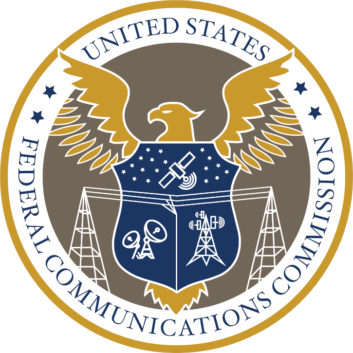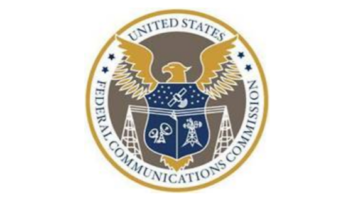 The Federal Communications Commission this week reinstated operations of a low-power FM station at the center of a long running dispute over alleged interference to a nearby full-power FM station.
The Federal Communications Commission this week reinstated operations of a low-power FM station at the center of a long running dispute over alleged interference to a nearby full-power FM station.
New River Community Church’s WYPH(LP), licensed to Manchester, Conn., has been the subject of interference complaints from Red Wolf Broadcasting’s WDRC(FM) in Hartford, Conn. Red Wolf began submitting letters of listener complaints of interference to its WDRC, which broadcasts at 102.9 MHz, in early 2020. WYPH commenced operations in 2017 at 102.5 MHz.
The FCC in April 2020 ordered the low-power FM station cease operations until it could demonstrate it was not the source of the interference. What followed was back-and-forth series of complaints, supplements and petitions filed by the two interested parties; and Media Bureau decisions that ultimately led to this week’s decisive ruling to reinstate WYPH’s operations.
[Read: FCC Resolving New England Interference Case]
The Media Bureau ordered the parties earlier this year to participate in “joint interference testing” to settle the dispute once and for all. The commission ultimately accepted test results conducted by a third-party independent broadcast engineer filed by WYPH, according to FCC documents released this week, after it determined Red Wolf was not cooperative in the interference testing.
New River conducted interference testing earlier this year and submitted its results in April. The on-off tests were conducted by independent broadcast engineer Michael Graziano and overseen by New River’s consulting engineer Tom Ray, according to the FCC release. The testing occurred at locations of the alleged interference incidents cited by WDRC listeners.
“We have reviewed the Interference Test Results submitted by New River and find that they demonstrate that WYPH-LP is not the source of the interference to the over-the-air reception of WDRC-FM,” according to the FCC. “Therefore, based on those results we will dismiss the complaint.”
The FCC’s letter also points out Red Wolf’s lack of cooperation in testing: “Subsequently, in a series of emails to Red Wolf, New River repeatedly sought Red Wolf’s participation in the on-off testing but Red Wolf did not commit to participating in such testing. Commission staff reaffirmed in an email to the parties that Red Wolf was obligated to work cooperatively. We find that Red Wolf’s decision not to participate in the testing with New River was unreasonable.”
The commission went even further to chastise Red Wolf for its lack of cooperation: “Red Wolf unreasonably refused to participate in the on-off testing as directed multiple times by the bureau and staff. In the future we encourage Red Wolf to participate in joint testing when provided the opportunity to do so.”
Red Wolf also claimed WYPH was using an unauthorized antenna that was not listed in its original construction permit. WYPH uses a two-bay Shively antenna instead of the four-bay Nicom antenna proposed as part of the station’s second-adjacent channel waiver request in its CP application. The FCC says WYPH notified them of the antenna swap.
In addition, Red Wolf argued that the WYPH license expired since the low-power station had been silent for over 12 months. While there have been previous such cases of license revocation under those circumstances “the commission may extend or reinstate such a station license if the holder of the station license prevails in an administrative or judicial appeal, the applicable law changes, or for any other reason to promote equity and fairness,” the FCC wrote in its decisive decision.
[Read: LPFM Facing $3,500 Forfeiture]
Those familiar with the most recent developments told Radio World they are unaware if WYPH has resumed broadcasting.
LPFM advocate Michi Bradley, founder of REC Networks, wrote about the New England interference case this week on her website. REC Networks previously worked with New River Community Church on its original CP application.
Bradley made following recommendations for other LPFM licensees based on what she learned from the WYPH circumstances: “LPFM construction permits do not specify a particular antenna make and model. When a second-adjacent waiver is requested, the applicant needs to demonstrate how a certain antenna can prevent interference from reaching occupied areas. While REC does not officially endorse this, if an LPFM station uses an antenna different than what they used in the exhibit demonstration, they leave themselves wide open for a second-adjacent complaint like this. It is important to realize that even if the station was built with the antenna used in the exhibit, they can still receive complaints. It would just be harder for the complaining station to make their case.”
Bradley concluded: “If you get a second-adjacent channel complaint and are forced off the air by the FCC, make sure that you cooperate fully with the Audio Division’s instructions and make every effort, even if the complaining station is uncooperative as was this case. WYPH’s cooperation in this case saved their license from statutory cancellation.”












